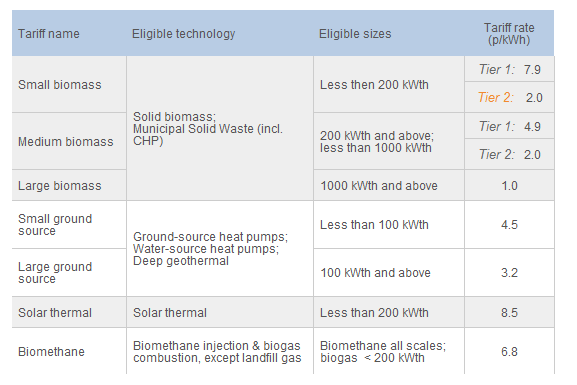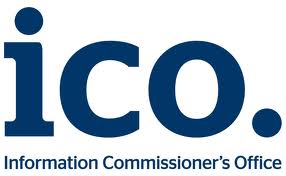The Renewable Heat Incentive
By becoming a Microgeneration Certification Scheme (MCS) Accredited Installer with the support of Easy MCS you are Certified to offer consumers The Renewable Heat Incentive as long as MCS Accredited equipment is used.
The Renewable Heat Incentive is very similar to the Feed In Tariffs which have done more than anything else to accelerate the installation of renewable energy capacity in Europe. That's why the founders of the Renewable Heat Incentive were so active in the campaign to introduce them in the UK. It succeeded and on 28th November 2011 the Renewable Heat Incentive came into force for commercial projects, with residential users being able to access RHI Premium Payments (Upfront Payment), Commercial users can access the RHI from November 28th 2011, and then Residential users back to July 2009 can then access the Domestic RHI in Spring 2014.
There are three steps to the RHI:
Step One: you install Microgeneration Certification Scheme Accredited renewable heat systems in your property such as solar thermal panels, heat pumps or a biomass (wood burning) boiler & you have them installed by an MCS installer.
Step Two: an estimate is made about how much heat your renewable energy systems will produce or a meter is put in place for commercial application
Step Three: you get paid a fixed amount based on that estimate (this will start in Spring 2014 for domestic consumers)
While the Renewable Heat Incentive is very similar to the Feed In Tariffs, there are some important differences due to the fact that pretty much every single property in the UK generates its own heat from a gas or oil boiler. In other words, there is no ‘National Grid for Heat’ and so importing and exporting heat is not relevant.
The scheme will be introduced in two phases.
In the first phase, long-term tariff support will be targeted in the non-domestic sectors, at the big heat users - the industrial, business and public sector – which contribute 38% of the UK’s carbon emissions. Under this phase there will also be support of around £15 million for households through the Renewable Heat Premium Payment.
The second phase of the RHI scheme will see households moved to the same form of long-term tariff support offered to the non-domestic sector in the first phase.
Key aspects of the RHI from 2011
- Support for a range of technologies and fuel uses including solid and gaseous biomass, solar thermal, ground and water source heat-pumps, on-site biogas, deep geothermal, energy from waste and injection of biomethane into the grid
- Support for industrial and the commercial sector; the public sector; not-for-profit organisations and communities in England, Scotland and Wales through the RHI tariffs
- Support for households through the Renewable Heat Premium Payment in the first year of the scheme until the Green Deal is introduced in October when households will become eligible for RHI tariffs
- The RHI will be funded from general Government spending, not through the previously proposed RHI levy
RHI premium payment: households
- RHI tariff payments will start for homes from 2014 to allow a more whole-house approach to heat production and energy saving.
- In the meantime, up to 25,000 installations from July 2011 will be supported by a “RHI Premium Payment” to help people cover the purchase price of green heating systems. Those taking up the Premium will then be eligible for an RHI tariff from October next year when the Green Deal begins, as will anyone else who has had eligible equipment installed from July 2009.
- For new build homes, an RHI tariff will be considered by the DECC for the 2012 phase.
- The “RHI Premium Payment” will be worth around £15m and will ensure there is a fair spread of technologies across all regions of Great Britain. The installed technologies will be monitored to enable government, manufacturers, installers and consumers to better understand how to make sure householders get the most out of them.
- There will be clear eligibility criteria in order to qualify for a Premium payment, including; a well insulated home based on its energy performance certificate and agreeing to give feedback on how the equipment performs.
- A key focus of this initial phase will be on people living off the gas grid, where fossil fuels like heating oil are both more expensive and have a higher carbon content.
- The DECC announced a consultation on proposed RHI payments in September 2011.
- Confirmed RHI tariffs are expected in Summer 2013.
RHI Domestic Premium Payments
Solar Thermal - £300/unit
Air Source Heat Pumps - £850/unit
Biomass boilers - £950/unit
Ground Source Heat Pumps - £1250/unit
Key aspects of the commercial sector
- RHI payments to be claimed by, and paid to, the owner of the heat installation or producers of biomethane for injection
- Payments will be made quarterly over a 20 year period
- For small and medium-sized installations (up to and including 45kWth), both installers and equipment to be certified under the Microgeneration Certification Scheme (MCS) or equivalent standard, helping to ensure quality assurance and consumer protection
- Tariff levels have been calculated to bridge the financial gap between the cost of conventional and renewable heat systems, with additional compensation for certain technologies for an element of the non-financial cost
- Heat output to be metered and the support calculated from the amount of heat used for eligible purposes, multiplied by the tariff level
- Biomass installations of 1 MWth capacity and above will be required to report quarterly on the sustainability of their biomass feedstock for combustion and where they are used to produce biogas
- Eligible non-domestic installations completed after 15 July 2009, but before the start of the RHI, will be eligible for support as if they had been installed on the date of its introduction
- The Gas and Electricity Market Authority (Ofgem) will administer the RHI including: dealing with applications; accrediting installations; making incentive payments to recipients; and monitoring compliance with the rules and conditions of the scheme

For further details on achieving MCS Accreditation and offering The Renewable Heat Incentive please contact a member of our MCS Team on 0800 882 4308.





















